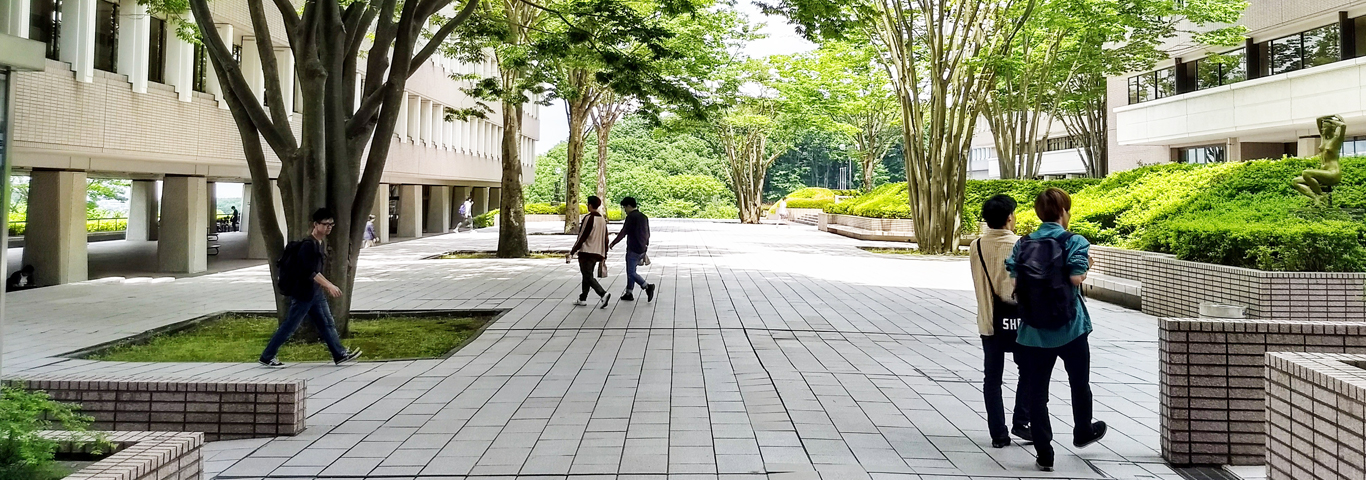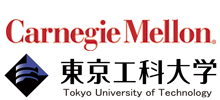HOME > Information > 2008 > Award Ceremony and Commemorative Speech for 2008 Katayanagi Prizes in Computer Science

Information
Award Ceremony and Commemorative Speech for 2008 Katayanagi Prizes in Computer Science

Tokyo University of Technology announces winner of 2008 Katayanagi Prizes in Computer Science.
Katayanagi Prizes in Computer Science are prizes presented in collaboration with Carnegie Mellon University.
Tokyo University of Technology, in collaboration with the Carnegie Mellon University (Pittsburgh), will award the second annual Katayanagi Prizes in Computer Science to two outstanding members of the world’s computer science community. The prizes have been sponsored by the Katayanagi Institute, the parent institution of Tokyo University of Technology.
The awards include the Katayanagi Prize for Research Excellence and the Katayanagi Emerging Leadership Prize. The former is awarded to an established researcher with a record of outstanding, sustained achievement, while the latter honors someone recognized as an emerging research leader. The prizes carry an honorarium of $20,000 for the senior researcher and $10,000 for the junior. Awardees are chosen by a committee comprised of members of each institution.
■Award Ceremony/Commemorative Speech
Date:Friday, May 23rs, 2008
Place:Room KE402, Katayanagi Advanced Research Institute, Hachioji Campus
Award presentation ceremony:14:00~
Commemorative speech:14:30~ (Christos Papadimitriou)15:30~ (Erik D. Demaine)
This year's Prize for Research Excellence goes to Christos Papadimitriou, the C. Lester Hogan Professor of Electrical Engineering and Computer Science at the University of California at Berkeley. The recipient of the Emerging Leadership Award is Erik D. Demaine, the Esther and Harold E. Edgerton Professor and associate professor of electrical engineering and computer science at the Massachusetts Institute of Technology.
Winner of the Prize for Research Excellence

Papadimitriou is an internationally recognized expert on the theory of algorithms and complexity, and its applications to databases, optimization, artificial intelligence, networks and game theory. He is the author of five books, including "Computational Complexity," one of the most widely used textbooks in the field of computational complexity theory, and "Turing," a novel published by the MIT Press in 2003. The latter is described as a love triangle that frames the main story, a series of lessons on the history and future of thought delivered by a super-program named after the first computer scientist, Alan Turing. At Berkeley, Papadimitriou is also a member of a band made up of professors and graduate students called Lady X and the Positive Eigenvalues.
Winner of the Emerging Leadership Award

Demaine is a rising star in the area of theoretical computer science with interests in computational geometry, data structures, algorithms and combinatorics. A MacArthur Fellow, he is especially well known for his work in computational origami, the mathematics of paper folding. The elegant shapes he fashions with folded paper in pursuit of his theories are considered to be works of art. Several pieces are currently on display at the Museum of Modern Art in New York City as part of an exhibit titled "Design and the Elastic Mind."
Upon the announcement of the Award recipients, Hideo Aiso, President of Tokyo University of Technology, Jared L.Cohon, President of Carnegie Mellon University, and Randal E. Bryant, Dean of Carnegie Mellon University’s School of Computer Science made the following comments.
Hideo Aiso, President of Tokyo University of Technology
"I wish to thank the members of the Carnegie Mellon and TUT Katayanagi Prize selection committees for their endeavors and patience in accomplishing their hard duties. Both winners are internationally recognized researchers who have made outstanding contributions to academic and industrial progress. I personally have become aware of very useful theories and algorithms through reading Dr. Papadimitriou's textbooks, and I have been very much interested in Dr. Demaine's research in the emerging field of origami mathematics, since origami is a part of Japanese traditional art and culture. I am convinced that their awards really enhance the value and authority of the Katayanagi Prizes and will give a significant stimulus to academic and processional activities in computer science and technology.
Jared L.Cohon, President of Carnegie Mellon University
"The Katayanagi Prizes continue to honor the best and brightest in the field of computer science. Computer science plays a critical role everywhere in the world today, but its greatest researchers and practitioners often go unsung. Through our collaboration with the Tokyo University of Technology, and the vision and generosity of Mr. Koh Katayanagi, we are able to honor them."
Randal E. Bryant, Dean of Carnegie Mellon University’s School of Computer Science
"We are very pleased to be able to honor these two distinguished computer scientists. Christos Papadimitriou has made many contributions to the areas of algorithms and optimization. He has eloquently expressed the viewpoint that the field of computer science provides important concepts for mathematics and science, in addition to providing them useful tools. Erik Demaine has demonstrated to the world that the art of origami has both deep theoretical foundations and amazing creative possibilities."
■About Tokyo University of Technology:
The Tokyo University of Technology was founded in 1986 by Mr. Koh Katayanagi in the Hachioji District of Tokyo to expand the educational activities of Nippon Electronic Engineering College, founded as Soubi Gakuen in 1947. Over the relatively short span of 20 years, the university has grown to be one of the nation's leaders in high-tech education. To proactively meet future demand, the university provides a variety of leading-edge subjects organized around three schools: the School of Media Science, the School of Bioscience and Biotechnology, and the School of Computer Science. The spacious campus, a 36-hectare (90-acre) estate surrounded by rich greenery and dotted with state-of-the-art labs and high-tech facilities, offers "an ideal environment for an ideal education" to more than 6,000 students.
■About Carnegie Mellon University
Carnegie Mellon University is a private research university with a distinctive mix of programs in engineering, computer science, robotics, business, public policy, fine arts and the humanities. More than 10,000 undergraduate and graduate students receive an education characterized by its focus on creating and implementing solutions for real problems, interdisciplinary collaboration, and innovation. A small student-to-faculty ratio provides an opportunity for close interaction between students and professors. While technology is pervasive on its 144-acre (58-hectare) campus, Carnegie Mellon is also distinctive among leading research universities for the world-renowned programs in its College of Fine Arts. A global university, Carnegie Mellon has campuses in Silicon Valley, Calif., and Qatar, and programs in Asia, Australia and Europe.